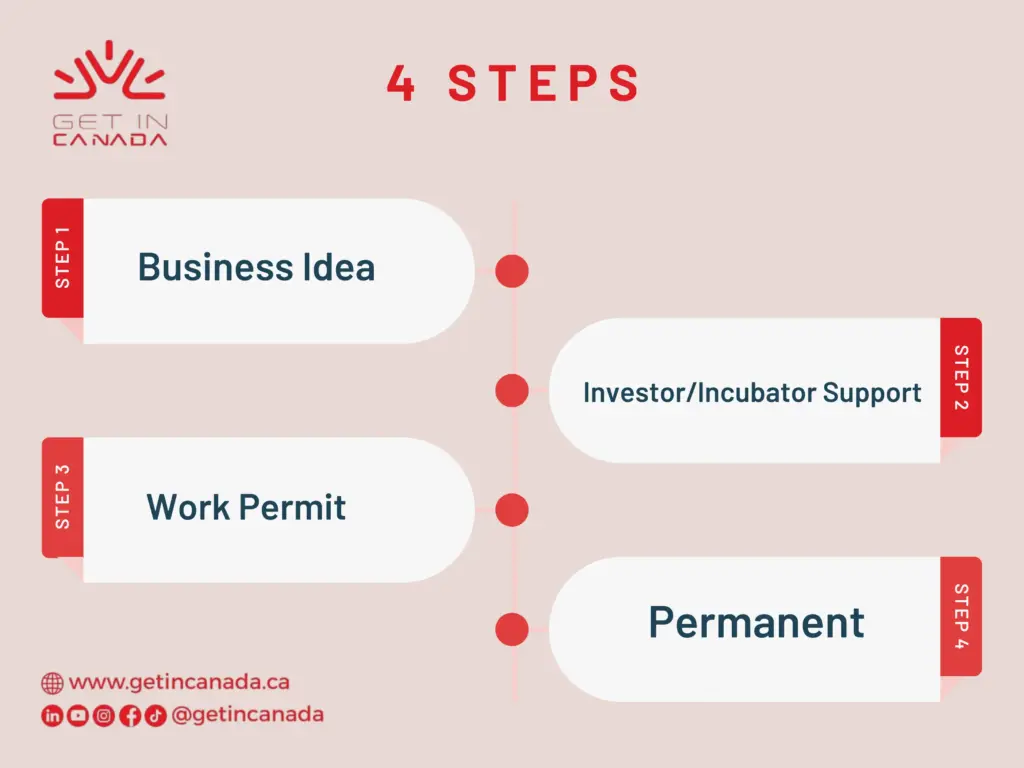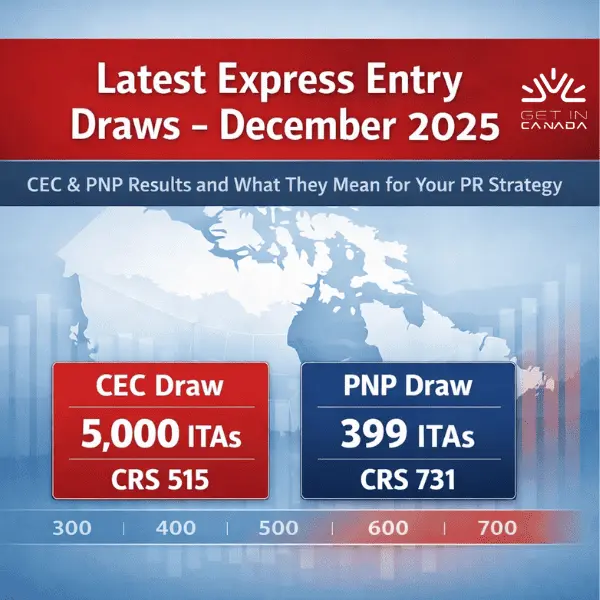Eligibility Criteria for Startup Visa Program Canada 2025

Canada has built its reputation as one of the most welcoming countries for entrepreneurs and innovators. The Startup Visa Program stands out as a pathway to permanent residence (PR) for foreign entrepreneurs who bring forward innovative ideas that can compete globally and create jobs for Canadians. If you’re an aspiring business founder considering immigration, understanding the eligibility criteria, requirements, costs, investment, and processing times of this program in 2025 is essential.
1. Overview of the Canada Startup Visa Program
The Canada Startup Visa Program connects international entrepreneurs with Canadian investors and incubators to establish innovative businesses in Canada. Unlike other programs, it is not about age, education, or work experience; it’s about the strength of your business idea and your ability to execute it.
Key benefits include:
- Direct pathway to PR for the applicant and family
- No minimum education requirement
- Flexibility to bring up to five co-founders under the same business
- Opportunity to apply for a startup visa work permit to start operations in Canada while PR is being processed

2. Eligibility Criteria for Canada Startup Visa Program 2025
To qualify for the Startup Visa Program Canada, applicants must meet the following eligibility criteria:
- Qualifying Business Ownership
- Each applicant must own at least 10% of the voting rights.
- Together with the designated organization, applicants must control more than 50% of the business.
- Letter of Support from a Designated Organization
- Applicants must secure backing from one of:
- Venture Capital Fund: minimum CAD $200,000 investment
- Angel Investor Group: minimum CAD $75,000 investment
- Business Incubator: no investment required, but acceptance into their program
- Applicants must secure backing from one of:
- Language Proficiency
- Minimum CLB 5 in English or French
- Verified through IELTS, CELPIP, or TEF → IELTS Canada Official Site
- Settlement Funds
- Proof of sufficient funds to support yourself and your family after arrival
- Amount depends on family size (updated yearly by IRCC → Settlement Funds Table)
- Active Management and Reidency
- Business must be incorporated in Canada
- Applicants must actively manage the company from within Canada
👉 Quick reference table:
| Criterion | Requirement |
|---|---|
| Business Ownership | At least 10% ownership; joint control >50% |
| Designated Organization | Letter of Support (VC, Angel, or Incubator) |
| Investment Requirement | $200,000 (VC) / $75,000 (Angel) / $0 (Incubator) |
| Language Proficiency | CLB 5 in English or French |
| Settlement Funds | Proof of funds (amount depends on family size) |
| Active Management & Residency | Incorporate & manage the business in Canada |
Book Your Consultation Session →
3. Canada Startup Visa Minimum Investment
A key requirement often misunderstood is investment capital. Entrepreneurs don’t necessarily need to use their own funds. Instead, they must secure support from a designated Canadian organization:
- Venture Capital Fund: minimum CAD $200,000
- Angel Investor Group: minimum CAD $75,000
- Business Incubator: no fixed investment required, but must be accepted into their program
List of Designated Organizations (IRCC)
4. Startup Visa Canada Cost
Applicants must consider both government fees and associated costs:
| Cost Item | Amount (CAD) |
|---|---|
| Government application fee (principal applicant) | $2,140 |
| Right of permanent residence fee | $515 |
| Work permit fee | $155 |
| Medical exams, biometrics, translations | ~$500 – $1,000 |
| Legal/consultant support | $3,000 – $10,000+ |
| Settlement funds (varies by family size) | Based on IRCC table |
Know More: IRCC official fee list
5. Canada Startup Visa Processing Time
Processing times depend on the applicant’s location, business complexity, and volume of applications.
- Permanent Residence (PR): ~31–37 months on average in 2025
- Startup Visa Work Permit: 4–6 months
More Details: IRCC Processing Times Tool
6. Canada Startup Visa Success Rate
The success rate of the Canada Startup Visa Program depends on several factors, including the quality of your business plan, the support of designated organizations, and the completeness of your application.
Current Approval Rates (2025)
- Average approval rate: ~38% – 45%
- Applications with strong investor/incubator backing: higher success (50%+)
- Applications with weak or generic business plans: much lower success (<30%)
Factors That Improve Success Rate
- Innovative business model (tech, clean energy, healthcare, AI, etc.)
- Clear scalability to expand beyond local markets
- Active involvement of the founders in management
- Strong financial planning and proof of funds
- High-quality pitch to designated organizations
Common Reasons for Refusal
- Weak or unrealistic business plan
- Lack of innovative or scalable elements
- Incomplete documents or missing proof of funds
- Failure to meet language requirement (CLB 5)
- Minimal founder involvement (passive ownership not accepted)
7. Start-up Visa Canada Work Permit
The startup visa Canada work permit is an excellent option for entrepreneurs who don’t want to wait for their permanent residency approval. With a letter of support from a designated organization, applicants can obtain a temporary work permit valid for about one year. This lets them move to Canada quickly, establish their business, and begin operations while their startup visa program PR application is still processing.
Key benefits include:
- Relocating to Canada before permanent residence is finalized
- Accessing Canadian markets, networks, and customers
- Building traction with investors and early clients
External resource: IRCC Work Permit Guide
Book Your Consultation Session →
8. Who Should Apply for the Startup Visa Program?
The Canada startup visa program is best suited for innovative entrepreneurs who have the vision, skills, and resources to build globally competitive businesses in Canada. If you meet the basic requirements and have a scalable idea, this program may be right for you.
Ideal applicants include:
- Entrepreneurs with innovative business ideas ready for global markets
- Founders who can secure a letter of support from a designated Canadian organization
- Applicants with CLB 5 or higher in English or French
- Individuals able to prove sufficient settlement funds
- Business leaders willing to take an active management role in Canada
9. Common Mistakes & Misconceptions
Many entrepreneurs misunderstand the Canada startup visa program and risk rejection due to small but critical mistakes. Knowing these in advance can save time, money, and effort.
Common mistakes and misconceptions include:
- Believing any business idea qualifies (must be innovative and scalable)
- Relying only on personal investment without a letter of support
- Confusing the work permit with permanent residence
- Ignoring the CLB 5 language requirement
- Forgetting to show settlement funds
10. Comparison with Other Canadian Immigration Programs
The Canada startup visa program is often compared with other immigration streams like Express Entry or the Provincial Nominee Program (PNP). While those focus mainly on skilled workers, the startup visa is designed for entrepreneurs bringing innovation and investment.
Key comparisons:
| Program | Target Group | Permanent Residence Path | Investment/Support Needed | Language Level |
|---|---|---|---|---|
| Startup Visa Program | Entrepreneurs with innovative ideas | Yes (direct PR pathway) | Letter of support + settlement funds | CLB 5 |
| Express Entry (FSW, CEC, FST) | Skilled workers | Yes | No business investment required | CLB 7+ |
| Provincial Nominee Program (PNP) | Skilled workers & entrepreneurs selected by provinces | Yes | May require job offer or provincial investment | Varies by province |
| Self-Employed Program | Artists, athletes, cultural workers | Yes | No designated support, must show experience | CLB 5 |
11. Step-by-Step Application Process
Applying for the Canada startup visa program involves multiple stages, from securing support to obtaining permanent residence. Following the process carefully increases your chances of success.
Step-by-step process:
- Develop an innovative business concept.
- Approach designated organizations.
- Secure a Letter of Support.
- Apply for a work permit (optional).
- Submit PR application with supporting documents.
- Relocate to Canada and launch your business once approved.
Conclusion
The Canada startup visa program is one of the most attractive immigration pathways for entrepreneurs who want to build innovative businesses and secure permanent residency. With clear eligibility criteria, access to designated organizations, and the option of a work permit to start operations early, it provides a strong foundation for success.
By understanding the requirements, costs, processing times, and common mistakes, applicants can significantly improve their chances of approval. If you have a scalable business idea and the drive to expand in Canada, the startup visa could be your gateway to both entrepreneurial growth and a new life in Canada.
Do you have the vision to build Canada’s next big startup success story? Contact our team today to check your eligibility and start your application for the Canada Startup Visa Program.”











